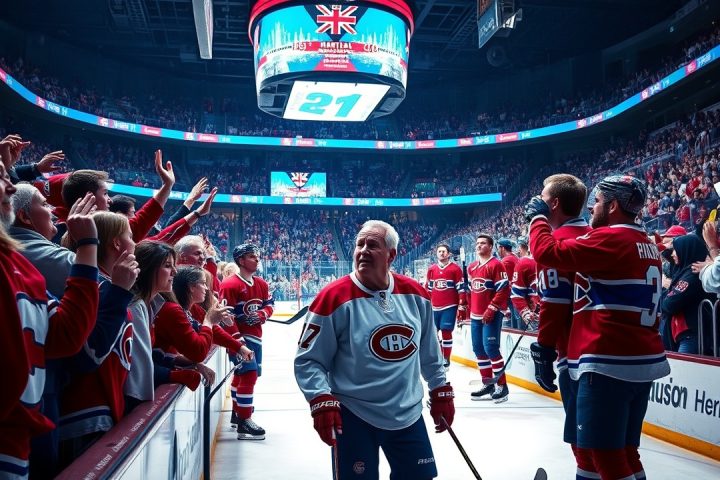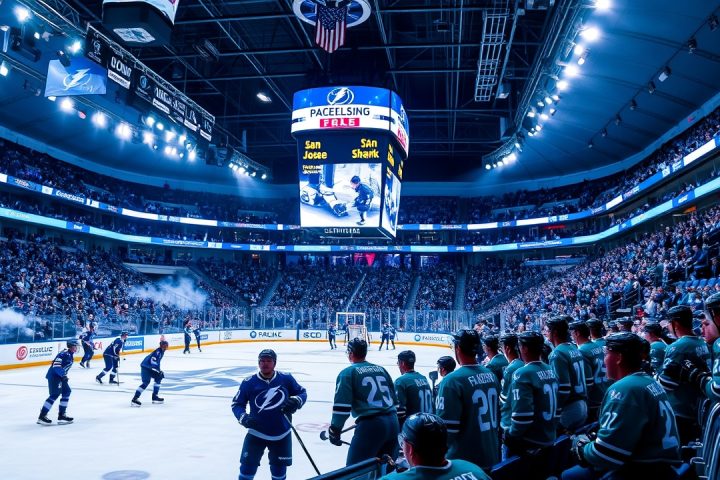Devon Toews: A Journey of Perseverance
At just 19 years old, Devon Toews faced a turning point in his hockey career upon his arrival in Hamden, Connecticut in 2013. A promising defenseman with exceptional puck skills, he had the potential to dominate, akin to his Canadian peers born in 1994. However, during his first two years of eligibility for the NHL draft in 2012 and 2013, he was completely overlooked by NHL Central Scouting, receiving no ranking among North American skaters. Consequently, no team saw fit to select him that year.
College Beginnings at Quinnipiac University
Toews began his collegiate journey at Quinnipiac University as an undrafted player who often left observers wanting more. Brijesh Patel, the university’s strength and conditioning coach, noted that in his early days, Toews would rush off the ice immediately after practice, lacking the desire to engage in extra work. Despite these initial shortcomings, he shone as one of their top players, demonstrating undeniable talent. In his freshman year, he posted modest stats with one goal and 16 assists, but by 2014, the New York Islanders acknowledged his potential, selecting him in the fourth round.
Transformation and Growth
As he transitioned into his sophomore year, Toews’ desire to grow as an athlete emboldened him to approach Patel with a request: he wanted to expedite his skating speed. Patel had anticipated such a question, recognizing that Toews was ready for a significant transformation. By this time, Toews was beginning to embrace the concept of a dedicated athlete—described by Patel as a “24-hour athlete.”
Quinnipiac, which recently won the NCAA hockey championship after defeating Minnesota in 2023, has thrived under the leadership of coach Rand Pecknold and has been a formidable force in the ECAC for five consecutive seasons. Despite this success, the school often finds itself off the radar for many elite prospects, particularly those from the U.S. National Team Development Program, which has yet to send recent athletes to Quinnipiac. As Patel pointed out, the university values players who are ready to face challenges head-on rather than solely focusing on high-skill individuals. This ethos attracted Toews, who played for several teams in British Columbia before cementing his place with the Surrey Eagles in the BCHL, where his skill was often overshadowed.
Achievements and Recognition
Now 31 and reflecting on his past, Toews describes his journey as one of a late bloomer—a narrative that fuels his motivation to continuously strive for improvement despite having been overlooked for so long. He believed in his ability to eventually reach higher echelons in hockey, where he often faced being underestimated due to his smaller stature.
Toews now averages over 24 minutes of ice time per game, ranking him 11th among NHL defensemen, and he recently signed a $50.75 million contract that spans seven years, following a championship win in 2022. This trajectory is a testament to his shift in attitude and commitment to a comprehensive training regimen.
The Importance of Holistic Training
Patel, who has been with Quinnipiac since 2008 and aided numerous players in honing their skills on and off the ice, emphasizes that success involves interconnected components. Training is just one part of an athlete’s responsibilities; the habits cultivated outside of practice directly affect performance. For instance, neglecting recovery can sabotage progress, turning the athlete’s effort into a futile exercise. Good nutrition, hydration, and sleep are essential for optimal athletic performance, highlighting the importance of a holistic approach to training.
During the hockey season, the Bobcats typically engage in early morning workouts, followed by practice. While they do not have mandated wake-up times, students are encouraged to prioritize proper nutrition to fuel every part of their training. Breakfast might consist of nutrient-packed meals, while hydration and post-training recovery routines, such as protein shakes, support their dietary needs. Players are also advised on optimal recovery practices, which should happen after training and before evening classes, emphasizing the necessity of quality sleep for ongoing performance improvement.
Patel teaches players that sleep is perhaps the most effective way to recover and insists on a disciplined regimen outside of training hours. His philosophy encourages self-accountability and empowerment in players’ development processes.
Dedication and Future Aspirations
At 21, Toews committed himself to additional speed training sessions with Patel on Tuesdays and Thursdays, attracting peers and eventually leading the pack. This dedication extended beyond the rink as he prioritized nutrition and skill development, resulting in noticeable physical improvements and on-ice performance enhancements.
Ultimately, Toews’s statistics reflected his advanced skills, achieving a career-high of 30 points during his junior year. Although Quinnipiac fell short against North Dakota in the championship, he soon secured an entry-level contract that would set the stage for a fruitful career.
Lessons Learned
Toews believes that perseverance in the face of adversity is key to his journey. His experiences with rejection serve as fuel for his relentless pursuit of growth. Patel reinforces a mindset that frames challenges positively rather than as obstacles; thus, players engage earnestly with their training. He underscores the significance of language, stating that what is spoken influences thoughts and actions, which in turn affects performance.
Patel imparts three crucial principles to his students: accountability, respect, and work ethic. By embodying these values, players are well-equipped to improve and compete effectively, reinforcing the overarching goal of becoming a well-rounded athlete—an embodiment of the concept of being a dedicated, 24-hour athlete. This foundational understanding is integral in helping athletes like Toews bridge the gap between potential and the achievement of their goals.




